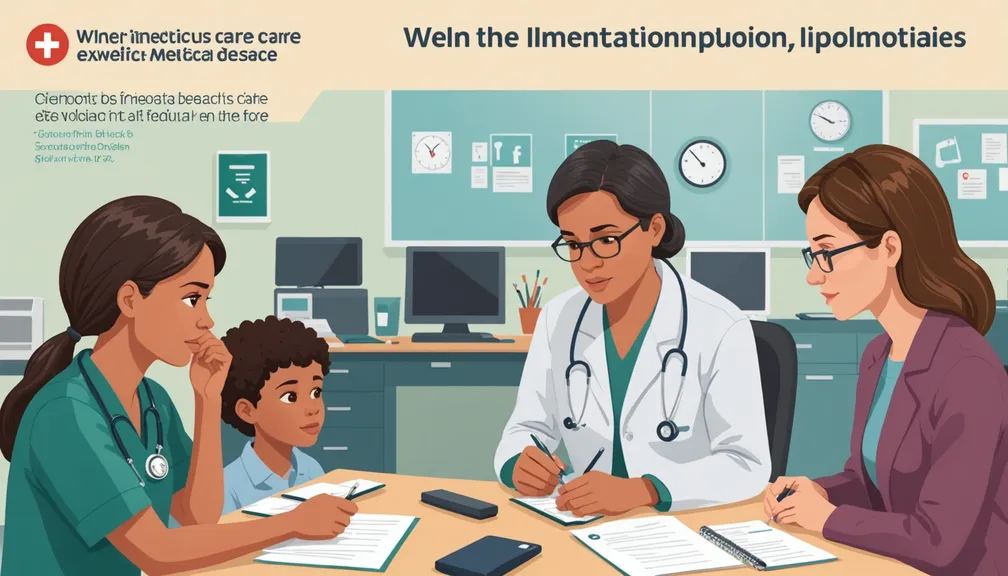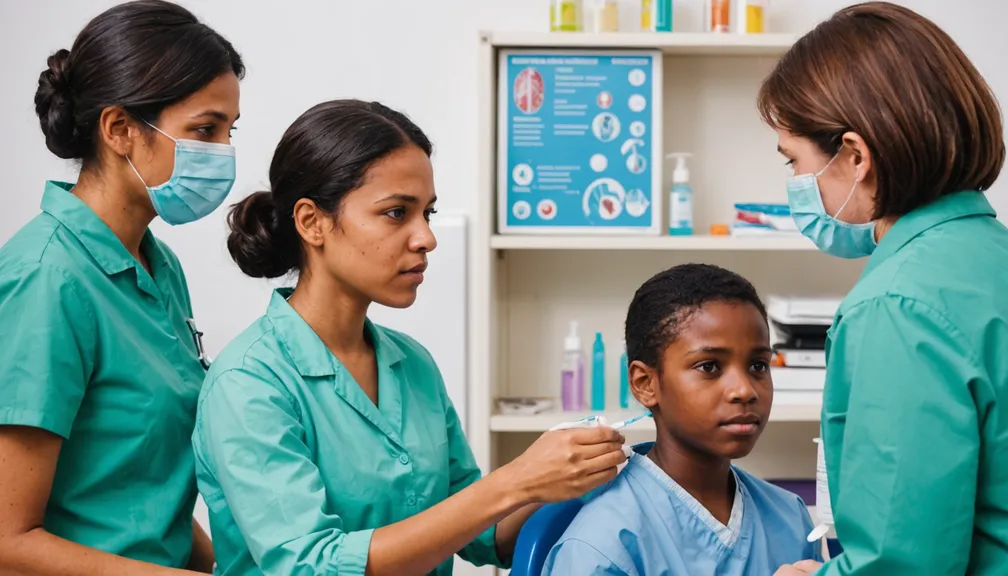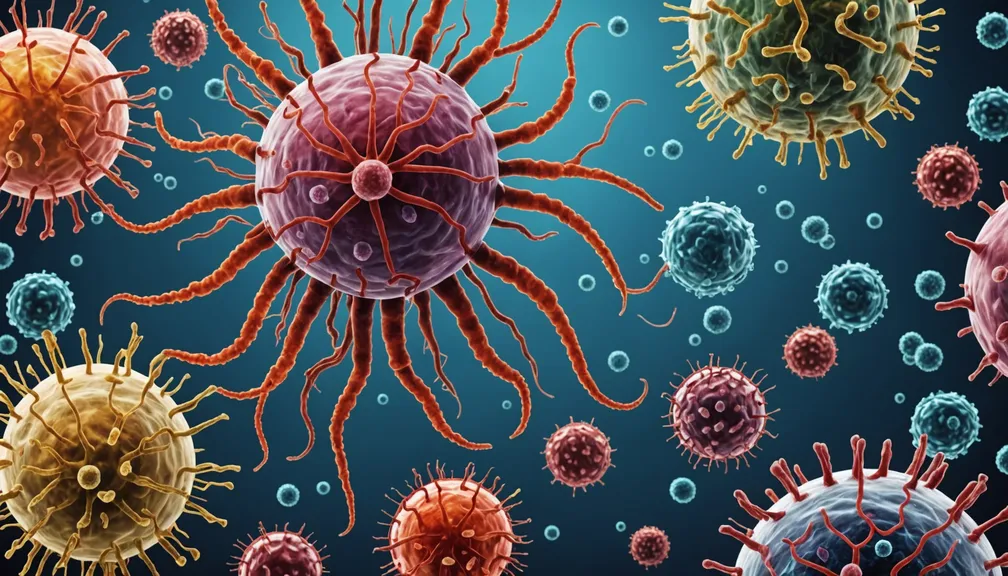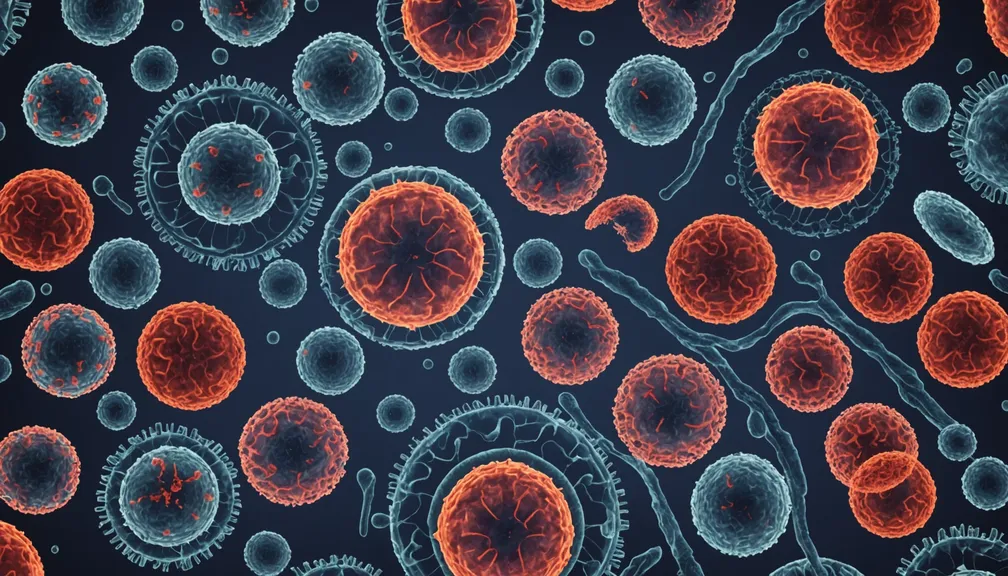Treatment Protocols: Medications and Supportive Care
Understanding the treatment protocols for rare infectious diseases is essential for managing the illness effectively. This lesson will guide you through the various medications used and the supportive care strategies that can help improve quality of life.
Medications for Rare Infectious Diseases
Medications are the cornerstone of treating rare infectious diseases. They work by targeting the specific pathogens causing the illness or by alleviating symptoms.
1. Antimicrobial Medications
- Antibiotics
- Purpose: Treat bacterial infections.
- Examples: Penicillin, doxycycline, ciprofloxacin.
-
Usage: Prescribed based on the specific bacteria identified through diagnostic tests.
-
Antivirals
- Purpose: Combat viral infections.
- Examples: Acyclovir for herpes viruses, oseltamivir for influenza.
-
Usage: Most effective when started soon after infection.
-
Antifungals
- Purpose: Address fungal infections.
- Examples: Fluconazole, amphotericin B.
-
Usage: Used for systemic fungal infections or severe cases.
-
Antiparasitics
- Purpose: Eliminate parasitic infections.
- Examples: Ivermectin for certain parasitic diseases, metronidazole for amoebiasis.
- Usage: Selected based on the specific parasite involved.
2. Targeted Therapies
- Monoclonal Antibodies
- Purpose: Target specific components of pathogens.
- Examples: Rituximab for certain viral infections.
-
Usage: Often used in cases where traditional treatments are ineffective.
-
Immunomodulators
- Purpose: Modify the immune response to better fight infections.
- Examples: Interferons for viral infections.
- Usage: Helps in managing immune-related complications.
3. Emerging Medications
Research is ongoing to develop new medications for rare infectious diseases. Clinical trials may offer access to the latest treatments, which can be discussed with your healthcare provider.
Supportive Care Strategies
Supportive care focuses on alleviating symptoms and improving overall well-being during treatment.
1. Symptom Management
- Pain Relief
- Medications: Acetaminophen, nonsteroidal anti-inflammatory drugs (NSAIDs).
-
Techniques: Heat therapy, relaxation exercises.
-
Fever Control
- Medications: Antipyretics like ibuprofen or acetaminophen.
-
Monitoring: Regular temperature checks to assess treatment effectiveness.
-
Respiratory Support
- Interventions: Oxygen therapy, inhalers for breathing difficulties.
- Equipment: Ventilators in severe cases.
2. Nutritional Support
- Balanced Diet
- Importance: Supports the immune system and overall health.
-
Recommendations: High-protein foods, vitamins, and minerals.
-
Supplements
- Types: Vitamin C, zinc, and other essential nutrients.
- Usage: As advised by a healthcare provider based on individual needs.
3. Hydration Management
- Fluid Intake
- Importance: Prevents dehydration, especially with fever or vomiting.
-
Recommendations: Water, oral rehydration solutions, clear broths.
-
Intravenous Fluids
- Usage: When oral intake is insufficient or not possible.
4. Psychological Support
- Counseling Services
- Purpose: Helps cope with the emotional stress of illness.
-
Availability: Through mental health professionals or support groups.
-
Support Groups
- Benefits: Connect with others facing similar challenges.
- Types: In-person or online communities.
Healthcare Team Involved in Treatment
Managing a rare infectious disease often requires a multidisciplinary approach. The following healthcare professionals may be involved:
- Infectious Disease Specialists
- Role: Diagnose and treat complex infections.
-
Expertise: Specialized in rare and uncommon pathogens.
-
Primary Care Physicians
- Role: Coordinate overall care and monitor general health.
-
Responsibilities: Conduct routine check-ups and manage comorbid conditions.
-
Nurses
- Role: Provide day-to-day patient care and support.
-
Tasks: Administer medications, monitor vital signs, offer education.
-
Pharmacists
- Role: Manage and dispense medications.
-
Responsibilities: Ensure proper medication use and address interactions.
-
Physical and Occupational Therapists
- Role: Assist in physical rehabilitation and daily living activities.
-
Benefits: Improve mobility, strength, and independence.
-
Mental Health Professionals
- Role: Offer psychological support and therapy.
-
Services: Counseling, stress management techniques.
-
Nutritionists or Dietitians
- Role: Develop personalized nutrition plans.
- Focus: Support immune function and overall health through diet.
Practical Tips for Patients and Caregivers
- Adhere to Medication Regimens
- Importance: Ensures effectiveness of treatment.
-
Strategies: Use pill organizers, set reminders, follow the prescribed schedule.
-
Monitor Health Regularly
-
Actions: Keep a symptom diary, track vital signs, report any changes to the healthcare team promptly.
-
Communicate Openly with Healthcare Providers
- Benefits: Enhances understanding of treatment plans and addresses concerns.
-
Tips: Prepare questions in advance, be honest about symptoms and side effects.
-
Access Support Services
- Resources: Social workers, patient advocacy groups, financial assistance programs.
- Assistance: Help navigate medical systems, provide emotional support, and offer practical help.
By understanding the medications and supportive care options available, patients and their loved ones can better navigate the challenges of rare infectious diseases. Collaborating closely with a dedicated healthcare team and following prescribed treatment protocols are key steps toward managing the illness effectively.






